HS-ETS1-4
Use a computer simulation to model the impact of proposed solutions to a complex real-world problem with numerous criteria and constraints on interactions within and between systems relevant to the problem.
-
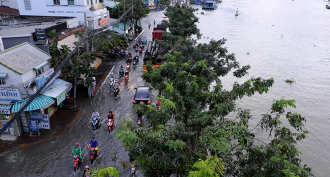 Earth
EarthExplainer: Why sea levels aren’t rising at the same rate globally
The ocean is rising all over the world. The rise seems speedier in some places. What gives? Many factors, it turns out, affect where — and why — the tide gets high.
By Katy Daigle and Carolyn Gramling -
 Planets
PlanetsAsteroids may have delivered water to early Earth
Scientists shot mineral pellets at a simulated planet. It showed an impact wouldn’t have boiled off all of an asteroid’s water.
-
 Science & Society
Science & SocietyHeating up the search for hidden weapons
Using an off-the-shelf camera and an innovative bit of software, a high-school student developed the means to inexpensively detect a hidden weapon.
By Sid Perkins -
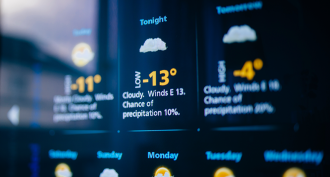 Science & Society
Science & SocietyExplainer: Weather and weather prediction
The sun and Earth combine to create the planet’s weather systems. And science is getting good at predicting what they’ll do.
-
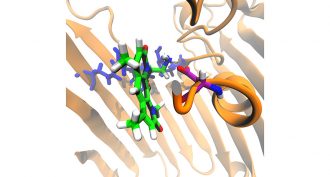 Chemistry
ChemistryNew rules point scientists toward next-gen germ-killers
Shape and other features help germ-killing drugs make it through barriers to enter bacteria. Knowing how they do this could lead to more and better better antibiotics.
-
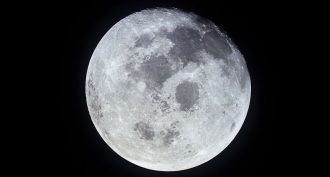 Planets
PlanetsHow Earth got its moon
How did our moon form? Scientists are still debating the answer. It may be the result of some one big impact with Earth — or perhaps many small ones.
-
 Math
MathCool Jobs: Motion by the numbers
What do car crash testers, video game creators and scientists who study athletic performance have in common? All use geometry in their cool jobs.
-
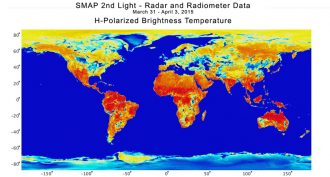 Climate
ClimatePredicting a wildfire with data from space
When the West gets dry it can catch fire. A teen decided to find out if satellite data might show where a fire’s fuel might reside.
-
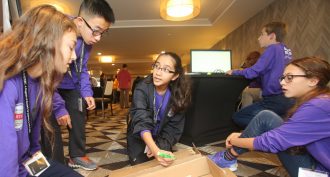
Teen prints a device to help keep wounds dry
A Broadcom MASTERS finalist invented a sensor that goes off when a wound is too wet. This would alert a patient it’s time to change their bandage.
-
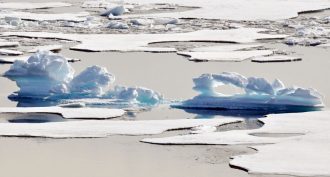 Environment
EnvironmentArctic Sea could be ice-free by 2050
Everyone contributes to the melting of Arctic sea ice, and all are in danger of making summer ice disappear there completely by 2050, a new study finds.
-
 Climate
ClimateCool Jobs: Wet and wild weather
How’s the weather? Forecasts rely on scientists and engineers who collect and interpret data gathered on the ground, in the sky and way up in space.
-
 Brain
BrainExplainer: How to read brain activity
Electricity underlies the chattering of brain cells. Here’s how scientists eavesdrop on those conversations.